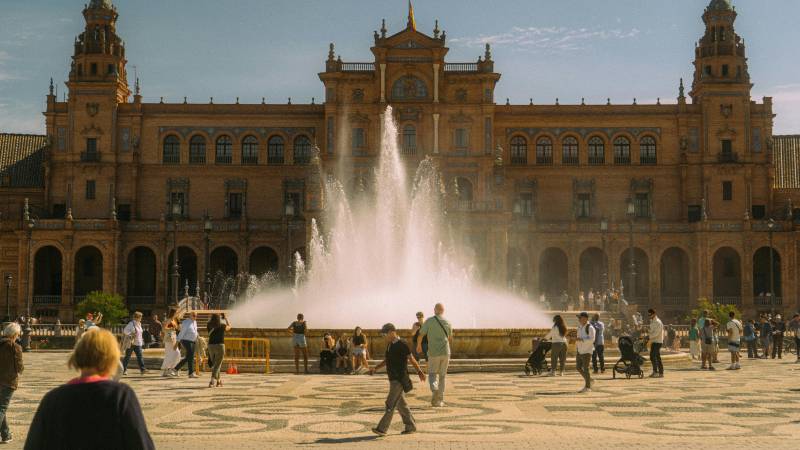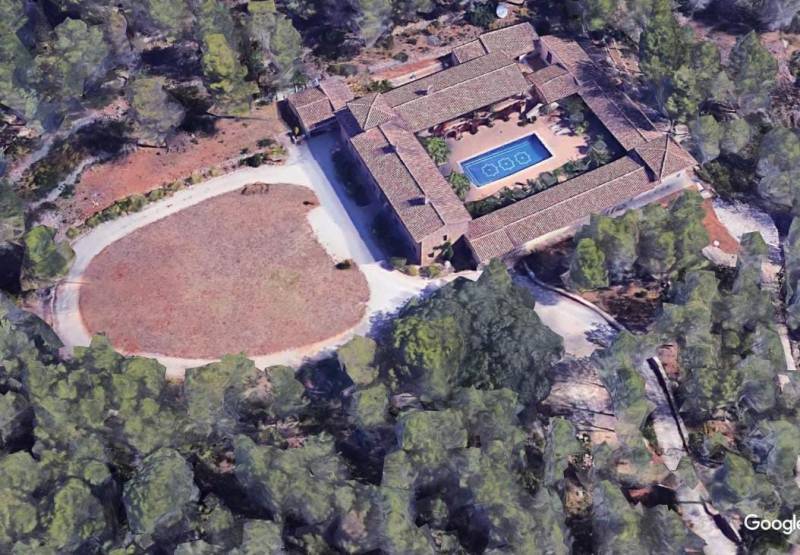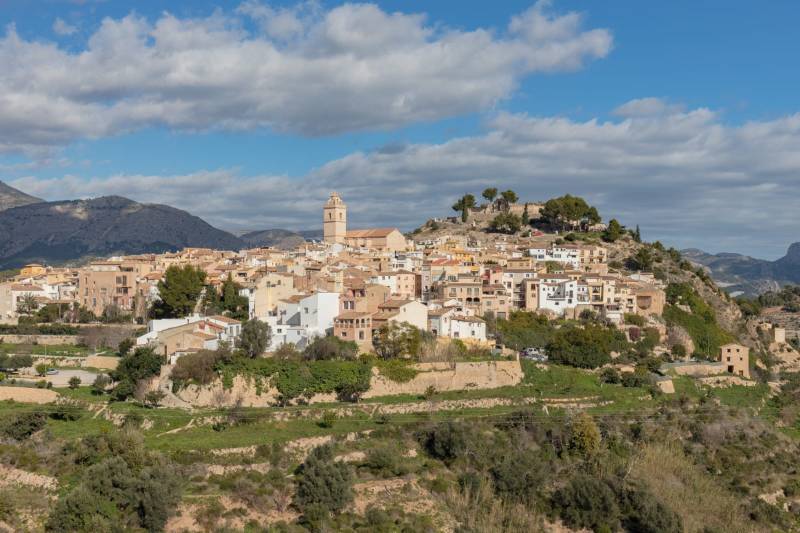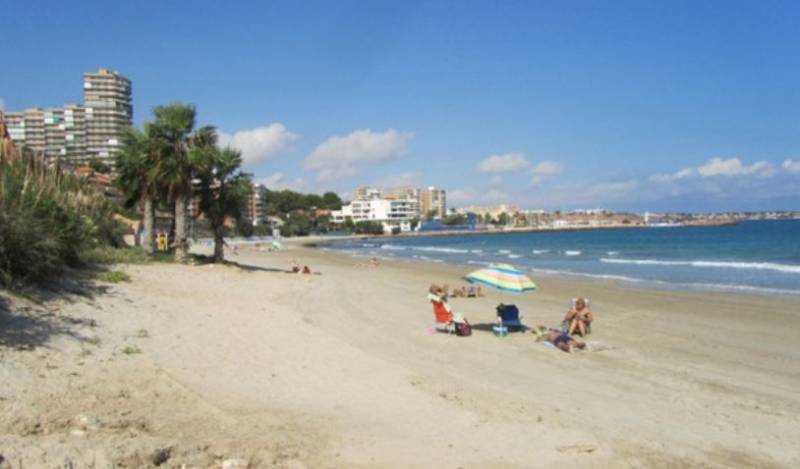- Region
- Vega baja
- Marina Alta
- Marina Baixa
- Alicante
- Baix Vinalopo
- Alto & Mitja Vinalopo
-
ALL TOWNS
- ALICANTE TOWNS
- Albatera
- Alfaz Del Pi
- Alicante City
- Alcoy
- Almoradi
- Benitatxell
- Bigastro
- Benferri
- Benidorm
- Calosa de Segura
- Calpe
- Catral
- Costa Blanca
- Cox
- Daya Vieja
- Denia
- Elche
- Elda
- Granja de Rocamora
- Guardamar del Segura
- Jacarilla
- Los Montesinos
- Orihuela
- Pedreguer
- Pilar de Horadada
- Playa Flamenca
- Quesada
- Rafal
- Redovan
- Rojales
- San Isidro
- Torrevieja
- Comunidad Valenciana
The northern Calas of Torrevieja
Calas Higuera, Zorra, Cornuda, Tía Roqueta, Gambote, Redonda, Mojón, Moro and Los Trabajos
The calas of Torrevieja: small, quiet beaches away from the madding crowd
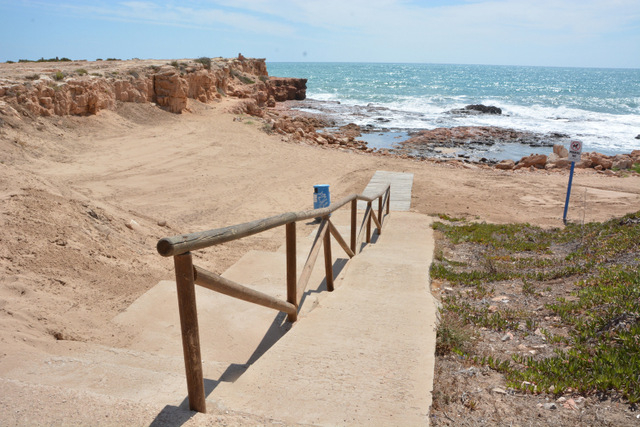 We generally associate the Costa Blanca with wide stretches of white or yellow sand, but of course not all of the coastline is the same, and much of the northern part of the shore in Torrevieja consists of rocky outcrops and small coves, some of them sandy and others not.
We generally associate the Costa Blanca with wide stretches of white or yellow sand, but of course not all of the coastline is the same, and much of the northern part of the shore in Torrevieja consists of rocky outcrops and small coves, some of them sandy and others not.
Starting at the northern end of the Playa de los Locos are a series of such “calas”: from south to north they are named Cala Cornuda, Cala de los Trabajos, Cala Tía Roqueta, Cala del Gambote, Cala Redonda, Cala de la Higuera, Cala de la Zorra, Cala del Mojón and Cala del Moro, after which the headland of Cabo Cervera 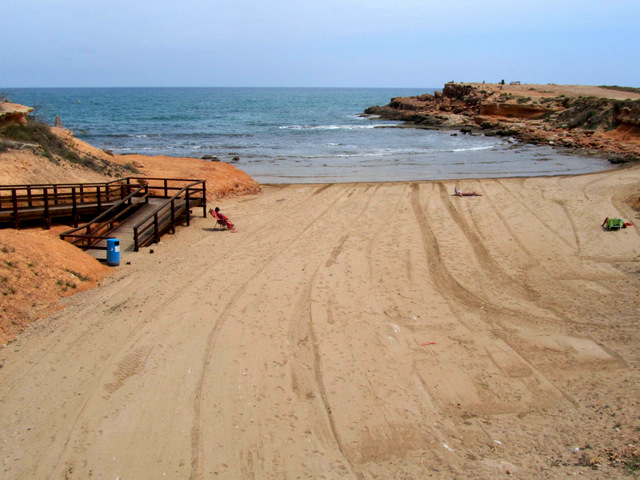 marks the beginning of the Playa de la Mata.
marks the beginning of the Playa de la Mata.
These provide opportunities for a quiet morning or afternoon in the sea or sunbathing, and although they are largely unspoilt there are parking opportunities both on the unbuilt land on the low cliffs and inland, as on the other side of the coast road (Avenida Alfredo Nobel) are built-up residential areas.
This is not the centre of Torrevieja: the building is predominantly low-rise and relatively new, and in terms of shops, bars and other services the area is adequately if not abundantly served.
Among the largest and most popular of these calas is the Cala del Mojón, where fishermen are often found on 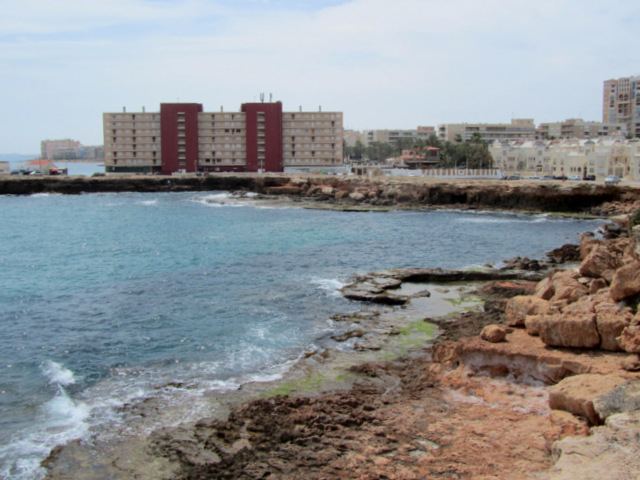 the rocks which flank the cove. This beach is unusual among the calas in that there is access for those of limited mobility.
the rocks which flank the cove. This beach is unusual among the calas in that there is access for those of limited mobility.
Access is also easy, although not with a wheelchair (the 50-metre path is not paved), at Cala de la Zorra, so named because a fox was found to be living there in the early part of the twentieth century.
Another of the little treasures on this part of the coast is the Cala de la Higuera (cove of the fig-tree), where the beach is stony rather than sandy.
There is wheelchair access at the tiny Cala Palangre (only twenty metres long), which lies at the southern end 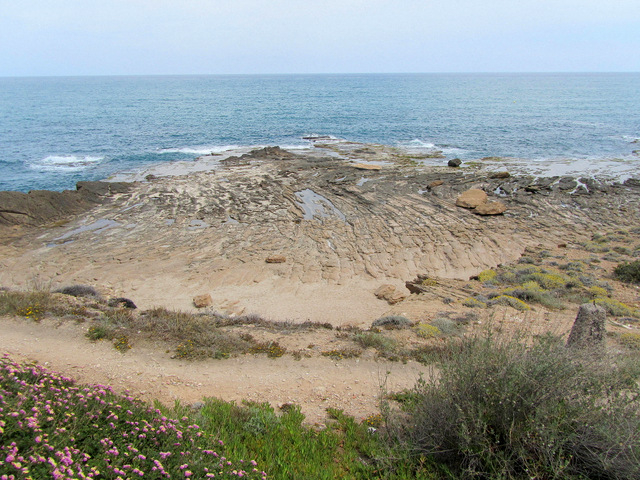 of the Playa de los Locos.
of the Playa de los Locos.
It should be borne in mind that there is no lifeguard service or beach bar at any of these small coves: they are areas for tranquil bathing in the clear water and a quiet day in the sun, and their limited size means that the installation of such services would be impractical.
Where are the Calas of Torrevieja?
Click for map, Calas of Torrevieja
Click for further information about other beaches inTorrevieja
















